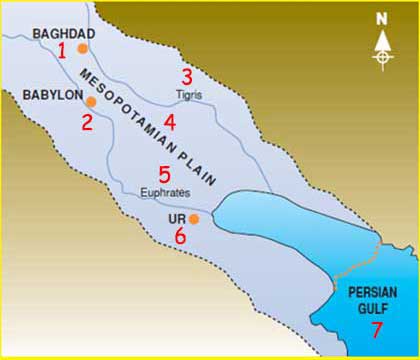- Dec 10, 2013
- 3,646
- 262
- Faith
- Non-Denom
- Marital Status
- Private
- Politics
- US-Democrat
1. adamah (#127)
Definition
ground, land
Genesis 1:25; Genesis 2:7; Genesis 2:9; Genesis 2:19; Genesis 3:17; Genesis 3:19; Genesis 3:23; Genesis 4:3; Genesis 4:11-12; Genesis 4:14; Genesis 5:29; Genesis 6:1; Genesis 6:7; Genesis 6:20; Genesis 7:23; Genesis 8:13; Genesis 8:21; Genesis 9:2; Genesis 9:20;
http://www.biblestudytools.com/lexicons/hebrew/kjv/adamah.html#
_____
2. erets (#776)
Definition
land, earth
Genesis passages that use the word erets (through to the Tower of Babel):
Genesis 1:2; Genesis 1:10-12; Genesis 1:15; Genesis 1:20; Genesis 1:24-26; Genesis 1:28-30; Genesis 2:1; Genesis 2:4-6; Genesis 2:11-13; Genesis 4:14; Genesis 4:16; Genesis 6:4-6; Genesis 6:11-13; Genesis 6:17; Genesis 7:4; Genesis 7:12; Genesis 7:14; Genesis 7:17-19; Genesis 7:21; Genesis 7:23-24; Genesis 8:1; Genesis 8:3; Genesis 8:9; Genesis 8:13-14; Genesis 8:17; Genesis 8:19; Genesis 8:22; Genesis 9:2; Genesis 9:7; Genesis 9:10; Genesis 9:14; Genesis 9:19; Genesis 10:5; Genesis 10:10-11; Genesis 10:20; Genesis 10:25; Genesis 10:31-32; Genesis 11:1-2; Genesis 11:8-9;
http://www.biblestudytools.com/lexicons/hebrew/kjv/erets.html
_____
3. tebel (#8398)
Definition
1. world
Genesis passages that use tebel (through to the Tower of Babel):
NONE! NONE! NONE! THE HEBREW WORD "TEBEL" ISN'T FOUND IN A SINGLE VERSE IN THE WHOLE BOOK OF GENESIS!
http://www.biblestudytools.com/lexicons/hebrew/kjv/tebel-2.html
Now I have to ask what are these YEC Global Flood believers whining and crying about, how about trying to read all of these passage in the original Hebrew and get a clue.
The Mesopotamian Flood Plain:


Definition
ground, land
- ground (as general, tilled, yielding sustenance)
- piece of ground, a specific plot of land
- earth substance (for building or constructing)
- ground as earth's visible surface
- land, territory, country
- whole inhabited earth
- city in Naphtali
Genesis 1:25; Genesis 2:7; Genesis 2:9; Genesis 2:19; Genesis 3:17; Genesis 3:19; Genesis 3:23; Genesis 4:3; Genesis 4:11-12; Genesis 4:14; Genesis 5:29; Genesis 6:1; Genesis 6:7; Genesis 6:20; Genesis 7:23; Genesis 8:13; Genesis 8:21; Genesis 9:2; Genesis 9:20;
http://www.biblestudytools.com/lexicons/hebrew/kjv/adamah.html#
_____
2. erets (#776)
Definition
land, earth
- earth
- whole earth (as opposed to a part)
- earth (as opposed to heaven)
- earth (inhabitants)
- land
- country, territory
- district, region
- tribal territory
- piece of ground
- land of Canaan, Israel
- inhabitants of land
- Sheol, land without return, (under) world
- city (-state)
- ground, surface of the earth
- ground
- soil
- (in phrases)
- people of the land
- space or distance of country (in measurements of distance)
- level or plain country
- land of the living
- end(s) of the earth
- (almost wholly late in usage)
- lands, countries 1e
- often in contrast to Canaan
Genesis passages that use the word erets (through to the Tower of Babel):
Genesis 1:2; Genesis 1:10-12; Genesis 1:15; Genesis 1:20; Genesis 1:24-26; Genesis 1:28-30; Genesis 2:1; Genesis 2:4-6; Genesis 2:11-13; Genesis 4:14; Genesis 4:16; Genesis 6:4-6; Genesis 6:11-13; Genesis 6:17; Genesis 7:4; Genesis 7:12; Genesis 7:14; Genesis 7:17-19; Genesis 7:21; Genesis 7:23-24; Genesis 8:1; Genesis 8:3; Genesis 8:9; Genesis 8:13-14; Genesis 8:17; Genesis 8:19; Genesis 8:22; Genesis 9:2; Genesis 9:7; Genesis 9:10; Genesis 9:14; Genesis 9:19; Genesis 10:5; Genesis 10:10-11; Genesis 10:20; Genesis 10:25; Genesis 10:31-32; Genesis 11:1-2; Genesis 11:8-9;
http://www.biblestudytools.com/lexicons/hebrew/kjv/erets.html
_____
3. tebel (#8398)
Definition
1. world
Genesis passages that use tebel (through to the Tower of Babel):
NONE! NONE! NONE! THE HEBREW WORD "TEBEL" ISN'T FOUND IN A SINGLE VERSE IN THE WHOLE BOOK OF GENESIS!
http://www.biblestudytools.com/lexicons/hebrew/kjv/tebel-2.html
Now I have to ask what are these YEC Global Flood believers whining and crying about, how about trying to read all of these passage in the original Hebrew and get a clue.
The Mesopotamian Flood Plain:


Last edited:

